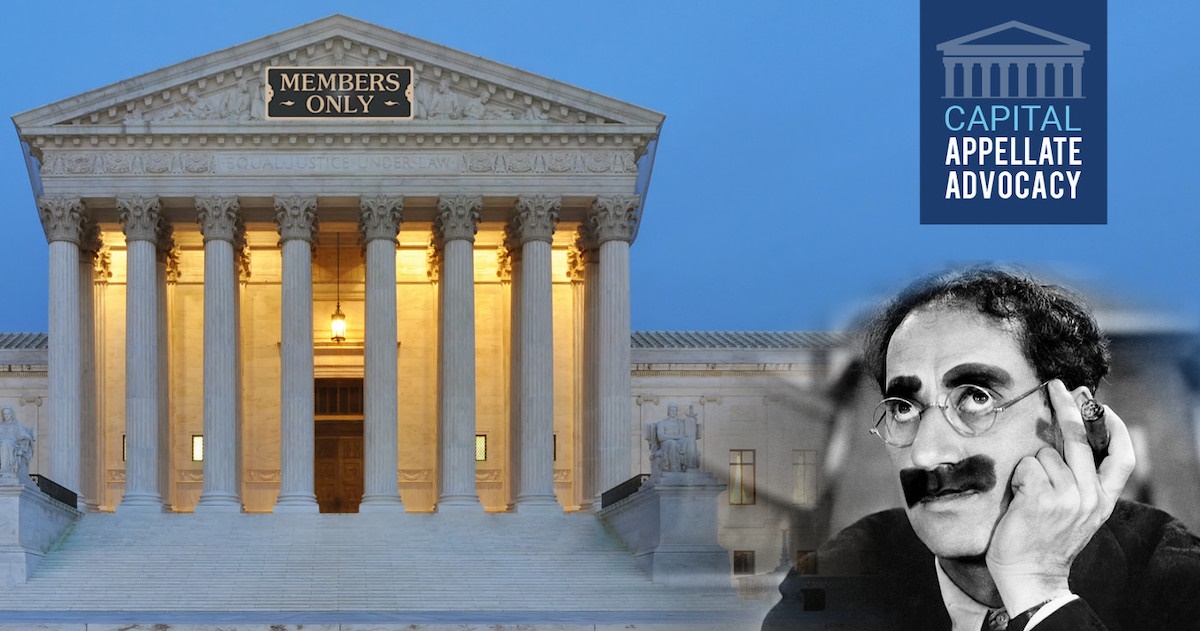Thank you Law 360 subscribers for making my op-ed, A Broader View of the US Supreme Court Bar, that publication’s second-most-read expert analysis during the week of April 22. Law 360 subscribers can access the op-ed here, and anyone can download a copy by clicking above. Earlier in April, I had posted the op-ed on LinkedIn under the title Redefining “the Supreme Court Bar.”
Thanks also for the many complimentary comments that I have received about the op-ed. I contend in the op-ed that the real Supreme Court Bar is not limited to a handful of elite private attorneys who repeatedly handle oral arguments before the Court. Although I have great admiration for many of those talented lawyers, the Supreme Court Bar actually is composed of hundreds of well-qualified appellate specialists around the United States who, as Supreme Court practitioners, handle the vast majority of Supreme Court work, which is in the form of petitions for writs of certiorari, briefs in opposition, merits briefs, and amicus briefs at both the petition and merits stages.
Last week, Dr. Adam Feldman in his Empirical SCOTUS article, Advocates that Drive the Justices’ Votes, contends that since the Supreme Court agrees to hear such a small percentage of cases, “only a select few attorneys ever have a chance to argue cases before the Court,” and that “[t]he ability to break into Supreme Court practice is made even more difficult by the group of elite attorneys with multiple Supreme Court oral arguments.” He suggests that “[i]f certain Supreme Court attorneys take similar positions before the justices over time, the justices might presuppose such associations in advance of reading an advocate’s argument in the form of a brief.”
As explained in my op-ed, Supreme Court practice is not limited to oral arguments or to a small group of repeat Supreme Court oralists. Further, in my opinion, the Justices’ presupposing the legal and policy views of the non-governmental oral advocates who frequently appear before the Court is generally undesirable, and underscores the need for recognition of a broader, more diverse Supreme Court Bar.

